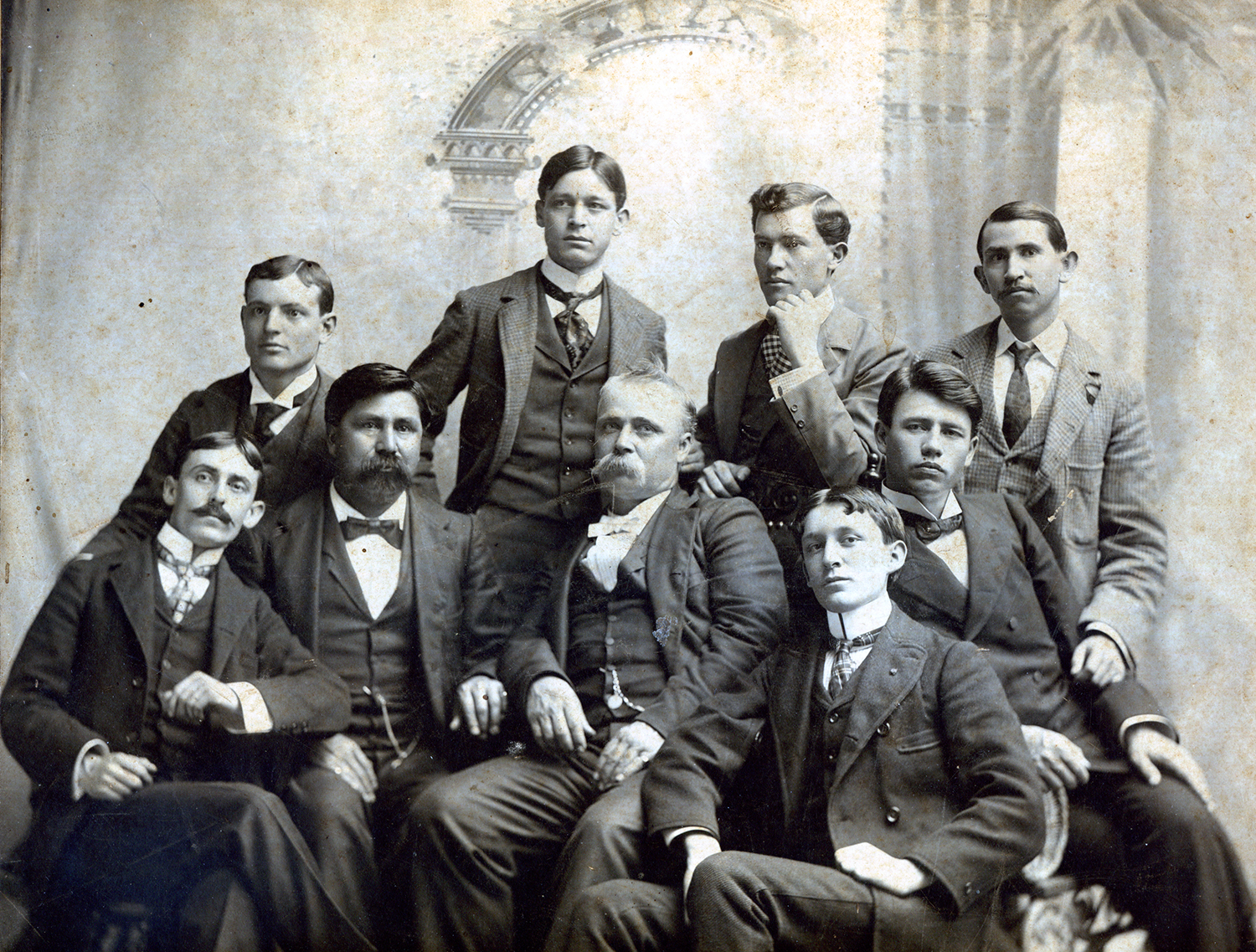[Cherokee Commission to the Dawes Commission]

c. 1893, reproduction
Alice Robertson Collection
Oklahoma Historical Society Research Division
In 1887 Congress passed the General Allotment Act, which sought to force indigenous people to assimilate by carving tribal landholdings into small plots, assigning them to tribal members as individually owned pieces of private property, and selling the surplus to settlers. Allotment destroyed two thirds of the landholdings of indigenous nations and marked the beginning of decades of federal policies that attacked tribal sovereignty. In 1893 the Cherokee Nation formed a commission to represent its interests in the federally mandated allotment process. Newly minted Vanderbilt lawyers William Wirt Hastings and William Pressley Thompson both served on the commission. In the decades that followed, the disposition of tribal property became an enormous part of their legal work for the Cherokee Nation, which included arguments in the U.S. Supreme Court. Advocating for what they believed was in the best interest of the Nation, Hastings and Thompson aggressively opposed allotments for non-Cherokee spouses and the descendants of people enslaved by Cherokees. The legal positions that they devised continue to resonate in the struggles of Cherokee Freedmen to have their citizenship rights recognized.
